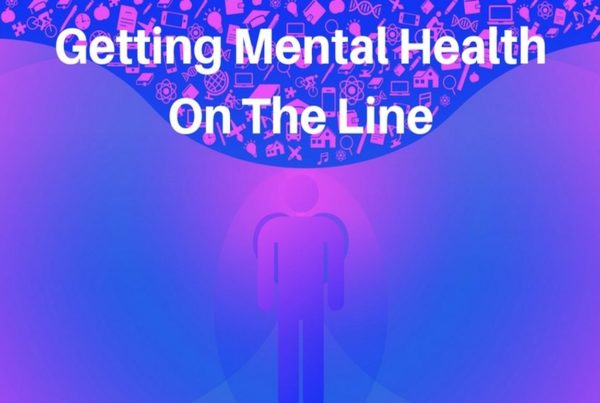How to Help Someone Grieving a Loss
When someone you care about experiences an unspeakable loss, it’s natural to feel uncertain about how to respond. The fear of saying the wrong thing often leads people to silence, leaving the grieving person feeling even more isolated. But supporting someone through loss doesn’t require perfect words—it requires presence, empathy, and intentionality. In this blog, we’ll explore how to help someone grieving a loss and practical tips to assist you.
Understanding Grief and Its Isolation
Grief, particularly after a profound loss, can feel like a fog that envelops the bereaved in loneliness. Many people instinctively withdraw, unsure of how to approach someone in pain. This isolation compounds the sorrow, creating a cycle of silence and misunderstanding.
Breaking this cycle starts with recognising that it’s better to say something—anything sincere—than nothing at all. Acknowledging the pain, even without knowing the “right” words, shows your care and support. This small but powerful act reassures the grieving person that they’re not alone in their darkest moments.
Why Silence Can Be Harmful
Avoiding someone in grief, whether out of fear or discomfort, sends an unintended message: their pain is too overwhelming to handle. This can leave the person feeling alienated and unsupported. Instead, be brave enough to lean into the discomfort and offer a listening ear or a heartfelt gesture.
Sometimes, all it takes is saying, “I’m here for you.” These simple words can bridge the gap created by loss and open the door to connection.
Start by Managing Your Own Feelings
When hearing about someone’s tragedy, it’s common to feel a rush of anxiety, sadness, or helplessness. Taking a moment to manage your emotions is essential before approaching the grieving person. Engage in calming practices, whether it’s a walk in nature, meditation, or talking with someone you trust. This self-regulation enables you to be present and composed, providing steadiness for the person in grief.
By tending to your emotional well-being first, you create a space where your friend or loved one feels safe to express their sorrow. This foundation of emotional stability ensures that your support is genuine and unwavering.
Acknowledging the Loss Openly
Acknowledging a loss without minimising it is key to offering meaningful comfort. Avoid platitudes like “everything happens for a reason,” which often diminish the reality of the loss. Instead, express heartfelt empathy with statements like, “I’m so sorry this has happened. I can’t imagine how hard this must be for you.”
Your openness creates an environment where the bereaved feels seen and validated. It may seem like a small gesture, but these genuine words can have a profound impact, opening the door for further dialogue.
Be Honest About Not Having the Perfect Words
One of the most compassionate things you can do is admit when you don’t know what to say. Saying, “I wish I had the right words, but I don’t. I just want you to know I’m here for you,” is both honest and comforting. It removes the pressure to find a perfect response while reinforcing your presence and care.
This approach can also alleviate the grieving person’s stress, as they may feel an unspoken expectation to reassure others. By keeping the focus on their needs, you offer solace without adding to their emotional burden.
Listening is the Greatest Gift
More than any words, your willingness to listen can offer unparalleled comfort. Let the grieving person guide the conversation. Whether they want to share memories, vent their anger, or sit in silence, your role is to hold space for their emotions without judgement or interruption.
Avoid turning the conversation toward your experiences or offering comparisons, such as, “I know how you feel—when my pet passed away…” Grief is deeply personal, and comparisons can inadvertently trivialise their pain. Instead, validate their feelings by saying, “That sounds so hard. Thank you for sharing this with me.”
FAQs
- How can I help someone who isn’t ready to talk? Sometimes, people need time before they’re ready to discuss their grief. Let them know you’re available whenever they feel ready, and consider sending a thoughtful note or message to express your care.
- What if I say the wrong thing? It’s okay to stumble with words; the intent behind your effort matters more. Sincerity and empathy will usually overshadow any minor missteps.
- Is it better to give space or stay close? Follow their lead. Some people need space, while others find solace in companionship. Checking in regularly lets them decide what they need.
- How can I help someone grieving during the holidays? Holidays can intensify feelings of loss. Offer to include them in your plans, or suggest creating new traditions that honour their loved one’s memory.
- Can humour help someone in grief? Humour can be a healing tool, but tread carefully. Allow the grieving person to set the tone and gauge their openness to light-hearted moments.
- What should I do if they become angry or distant? Grief can manifest as anger or withdrawal. Be patient and avoid taking it personally. Continue to offer support without pressuring them to engage.
Release Hypnosis Melbourne Hypnotherapy
Since 2015, Lawrence Akers has been working under the name Release Hypnosis offering Hypnotherapy and ACT based work to the people of Melbourne or an online service. Based on St Kilda Rd, Release Hypnosis is an easy and convenient location to get to and accessible by the ANZAC station train and tram stop. Release Hypnosis can help with a wide range of presenting issues, and I offer a free 30 minute no obligation discovery call for those who are unsure if hypnotherapy is the right way forward for them.
Book Your FREE 30 Minute Consultation With Release Hypnosis NOW!
You may also like to read:
Exploring Content-Free Hypnotherapy
The Journey to Becoming a Better Hypnotic Subject
Best Hypnotherapy Resources 2023: Release Hypnosis Top Blogs
What Is The Success Rate of Hypnosis?








